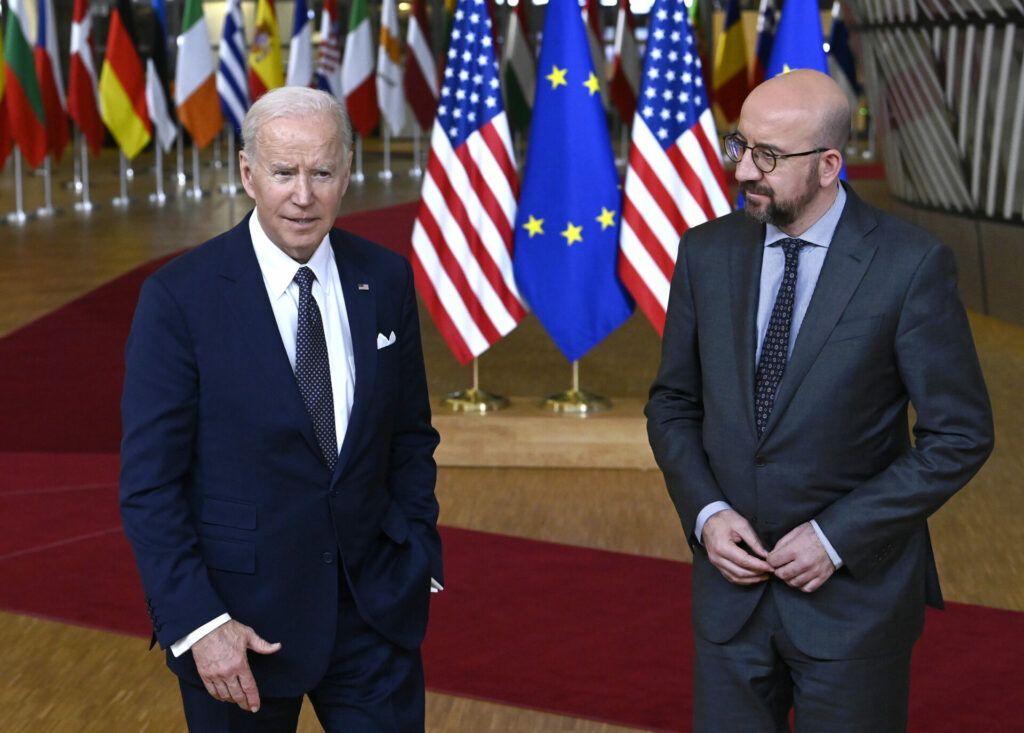The European Commission has criticised a passage in the Inflation Reduction Plan, which US lawmakers narrowly passed in the Senate to make way for wide-ranging economic and climate change legislation.
EU concerns centre around tax benefits for people who buy electric cars, as these benefits are only granted after a certain proportion of the battery components come from the US.
"The European Union is deeply concerned about this potential new transatlantic trade barrier that the US is currently discussing," a European Commission spokesperson said on Thursday.
"We believe this is discriminatory, penalising foreign products over American products," the spokesperson continued, adding "we continue to urge the US to remove these discriminatory elements from the bill and ensure it is fully compliant with World Trade Organization rules."
US media reported that the restrictions on tax breaks were included due to Democrat Joe Manchin. Senate Democrats were dependent on Manchin's approval to pass the bill due to their slim majority in the Senate. When the bill passed, it followed a 51-50 party line.
Joe Manchin obstruction
Democrats had been frustrated for months after Manchin first watered down the original proposal (Build Back Better) and then killed it entirely.
Manchin justified his opposition to the bill citing concerns that they were bad for West Virginia, whose economy and culture are steeped in coal mining. It has since been revealed that the West Virginia senator has made millions from his ownership of a coal-trading company, prompting speculation that he blocked a climate package for the public good for his own narrow self-interest.
US climate ambitions
The Inflation Reduction Act "would lower health care, prescription drug, and energy costs, invest in energy security, and make our tax code fairer—all while fighting inflation and reducing the deficit," according to the White House.
Crucially, it marks the biggest ever climate legislation enacted the the US, which has struggled to pass environmental laws due to Republican opposition and industry lobbying.
Related News
- First Tesla electric trucks on the road this year
- Over 60% of EU impacted by drought as extremely dry conditions continue
- Increased anxiety and rise in crime: What extreme heat can do to mental health
Now, the bill has ambitions cut US emissions by 40% by 2030 based on 2005 levels. Climate researchers have said emissions must be halved in this decade and that climate neutrality must be achieved by 2050 to avoid climate disasters. The US bill thus follows the EU's Green deal targets, which aim for the region to be climate neutral by 2050.
The US proposal includes notable tax credits to unleash clean energy projects such as wind and solar while allowing a $7,500 discount for Americans who opt for new electric vehicles.
Moreover, the bill will grant $9bn to make houses more energy efficient, tax credits for heat pumps and rooftop solar as well as a $27bn "clean energy technology accelerator" to kickstart renewable technology.
A further $60bn are planned for environmental justice projects, while a new program will reduce methane leaks, a greenhouse gas, from oil and gas drilling.
The bill will now continue its onward journey to the House, where it is expected to pass thanks to a Democratic majority, and from then on it will be signed by President Joe Biden.

